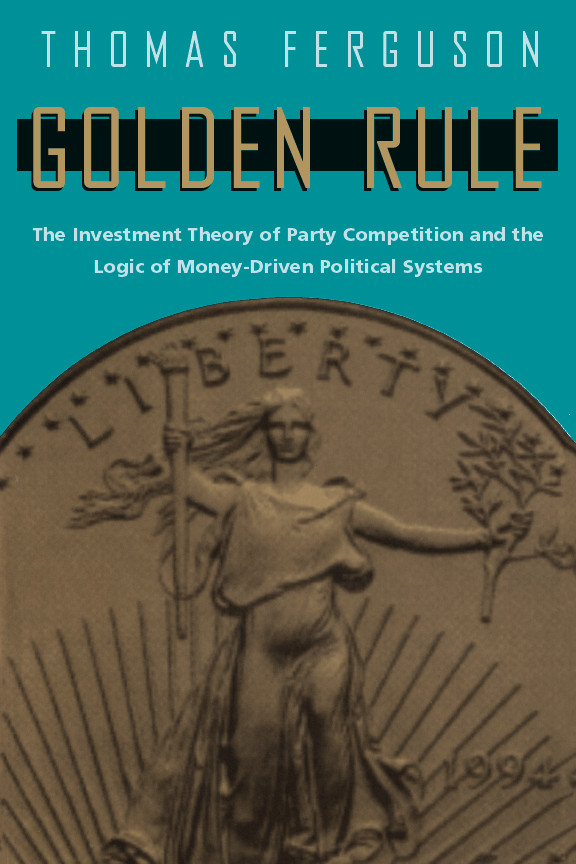 THOMAS FERGUSON [email]
THOMAS FERGUSON [email]
PAUL JORGENSEN [email]
Ferguson is professor of political science at the University of Massachusetts, Boston, senior fellow of the Roosevelt Institute, and contributing editor at AlterNet. Jorgensen is assistant professor of political science at University of Texas, Pan American and Non-Resident Fellow at the Edmond J. Safra Center at Harvard.
They co-authored a just-released piece: “Massive Surge of Republican Money in Last Ditch Effort to Sink Obama,” which states: “For 2012, the scariest thing about 2000 is the evidence that a flood of highly concentrated Republican money in the very last week of that campaign gave G.W. Bush a decisive edge in the battleground states — and that contrary to reports in the national media, there are signs that history may be about to repeat itself.
“The little known 2000 story is meticulously laid out in a study by Richard Johnston, Michael G. Hagen, and Kathleen Hall Jamieson, ‘The 2000 Presidential Election and the Foundations of Party Politics.’ Trailing in the final weeks of the campaign, Al Gore began aggressively attacking Bush on Social Security. Helped along by news trends in the (free) mass media that the three scholars carefully track, and matching or even sometimes exceeding the Bush campaign’s ad buys, Gore rallied. He started climbing in the polls.
“But in the final week of the campaign, Bush’s Golden Horde of campaign contributors unrolled their mighty bankroll, sinking most of the money into battleground states. As the three scholars observe, the result was a natural experiment, in which part of the country was saturated with political money while the rest was only lightly sprinkled. The outcome was ruinous for Gore. …
“Big Money’s most significant impact on politics is certainly not to deliver elections to the highest bidders. Instead it is to cement parties, candidates, and campaigns into the narrow range of issues that are acceptable to big donors. The basis of the ‘Golden Rule’ in politics derives from the simple fact that running for major office in the U.S. is fabulously expensive. In the absence of large scale social movements, only political positions that can be financed can be presented to voters. On issues on which all major investors agree (think of the now famous 1 percent), no party competition at all takes place, even if everyone knows that heavy majorities of voters want something else. …
“The true influence that large donors wield in American elections is chronically underestimated. … Especially where Democrats are concerned, the myth of small donors is a powerful instrument of miseducation.”